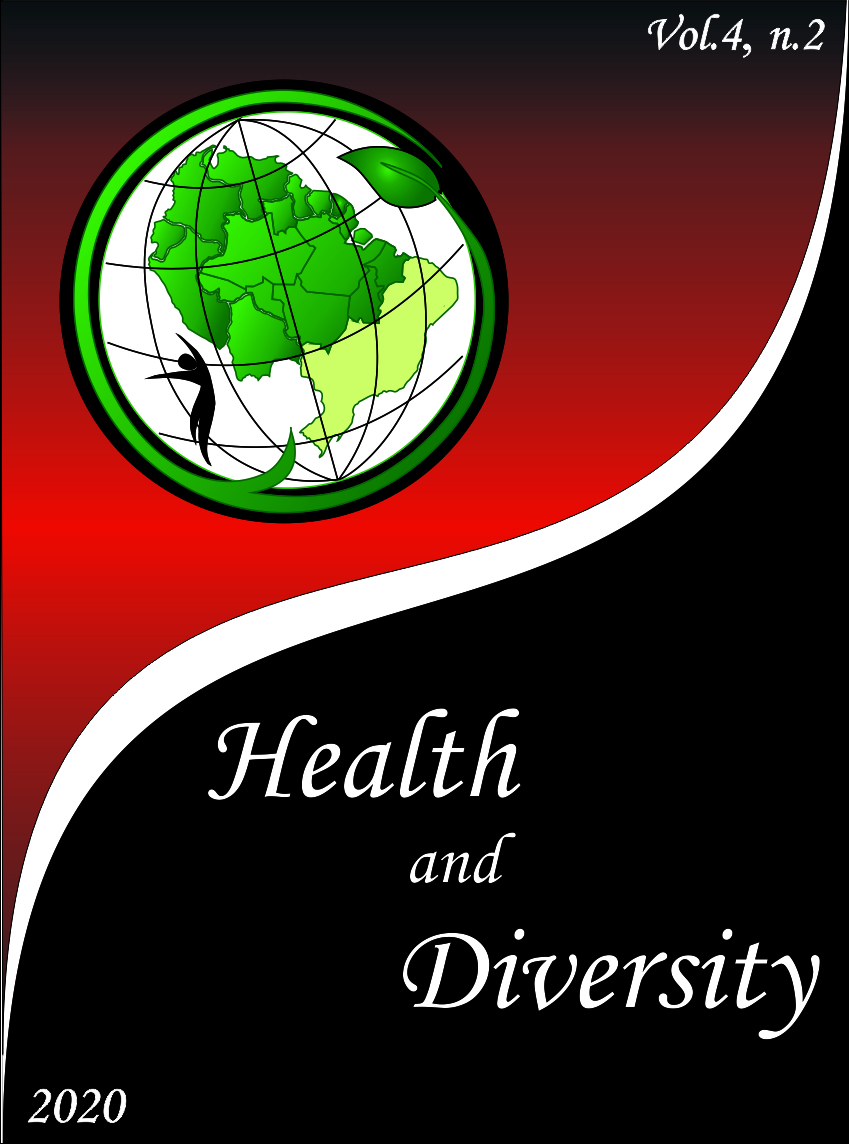Biomedical Professionals in Brazil: the need and training of human resources for health development
DOI:
https://doi.org/10.18227/hd.v4i2.7534Palavras-chave:
Biomedical Sciences, biomedical professionals, federal university, graduatesResumo
Introduction: The undergraduate course in Biomedical Sciences has existed in Brazil since 1966. It has expanded strongly in the last two decades and is responsible for training professionals to diagnose and research the causes, effects, and pathological mechanisms of diseases that affect the population. Even after decades of implementation and considering the reasons that led to the creation of the course, the evaluation in which areas these professionals are working is still incipient. Objective: Our aim is to know if the Biomedical Sciences graduates are being absorbed by the market job and in which areas. Methods: The present work is a retrospective cross-sectional observational study, based on the data of the students who had graduated in the Federal University of the Triangulo Mineiro, Brazil, from the first class of the course in 2003, until the second half of 2018. Results: The study has shown that the course of Biomedical Sciences of a Federal institution in Brazil has low evasion and that most of the graduates migrated to post-graduation (62.3%). Moreover, the majority of the professionals are located in the Southwest region of the country and most of them work in one of the specific áreas linked to the course (70.3%). In addition, these professionals are more prone to ingress in the academic area. Conclusion: These findings demonstrate that, despite being disproportionately distributed in the country, there is still demand for these professionals and clearly indicate the importance of the Biomedical Sciences egresses to teaching and research in Brazil.
Downloads
Referências
BRASIL. Lei Nº 6.684, de 3 de setembro de 1979: Regulamenta as profissões de Biólogo e de Biomédico, cria o Conselho Federal e os Conselhos Regionais de Biologia e Biomedicina, e dá outras providências. Diário Oficial da União: Brasília, DF, p. 12761. 1979.
CAMARGO, K.R. A relevância do uso de técnicas qualitativas em pesquisas sobre a biomedicina. Ciência & Saúde Coletiva, v.13(4); p.1327-1330, 2008.
CAMPOS, L.D.E.; CECCHI, S.J.; ABRAHÃO, M.A.; LOUREIRO, E.C.B.; ALMEIDA, N.A.; MIRANDA, P.J.C. A trajetória dos cursos de graduação na saúde: 1991-2004 – Curso de Biomedicina. Brasília; Instituto Nacional de Estudos e Pesquisas Educacionais Anísio Teixeira, v15; p.21-50, 2006.
CATANI, A.M.; REY, A.P. A educação superior no Brasil e as tendências das políticas de ampliação ao acesso. Atos de Pesquisa em educação – PPGE/ME FURB. ISSN 1809– 0354, v. 2, nº 3, p. 414-429, 2007.
CONSELHO FEDERAL DE BIOMEDICINA. CBBM 2018: “Brasil tem hoje 238 cursos de Biomedicina – é a profissão do futuro”. < https://cfbm.gov.br/12661-2/> (acessed 09/2020).
CONSELHO FEDERAL DE BIOMEDICINA. História da Biomedicina. < https://cfbm.gov.br/historia-dabiomedicina/> (acessed 08/2020).
CONSELHO FEDERAL DE BIOMEDICINA. Habilitação. < https://cfbm.gov.br/habilitacao/>(acessed 08/2020).
CONSELHO NACIONAL DE EDUCAÇÃO. Diretrizes Curriculares Nacionais dos Cursos de Graduação em Biomedicina. Resolução CNE/CES 2, de 18 de fevereiro de 2003.
COSTA, M.C. E SILVA, R.G.L. A dinâmica do conhecimento biomédico e em saúde: uma interpretação sociológica. Sociologias, Porto Alegre, ano 21, v.50, p. 18-47, 2019.
ENADE. Inep - Relatórios de cursos – Curso de Biomedicina, UFTM. 2016. < https://cfbm.gov.br/12661-2/> (acessed 09/2020).
FARIA, V. Desenvolvimento, urbanização e mudanças na estrutura do emprego: a experiência brasileira dos últimos trinta anos. Rio de Janeiro: Centro Edelstein de Pesquisas Sociais, p. 182-244, 2008.
FIGUEIREDO, A.M; MCKINLEY, D.W; LIMA, K.C; AZEVEDO, G.D. Medical school expansion policies: educational access and physician distribution. Med Educ. v. 53(11); p.1121–1131, 2019.
FROTA, M.A; WERMELINGER, M.C.M.W; VIEIRA, L.J.E.S; XIMENES NETO, F.R.G; QUEIROZ, R.S.M; AMORIM, R.F. Mapping nursing training in Brazil: challenges for actions in complex and globalized scenarios. Ciên. Saúde Colet. v.25(1); p.25-35, 2020.
GONDIM, S.M.G. Perfil profissional e mercado de trabalho: relação com a formação acadêmica pela perspectiva de estudantes universitários. Estudos de Psicologia. v.7(2); p.299-309, 2002.
GUERRA, L.C.B. O processo de criação do Programa Universidade para Todos: PROUNI. Dissertação de Mestrado. Universidade Federal do Rio Grande do Norte/UFRN, Natal. 227 p., 2009.
GUIMARÃES, J.A. A pesquisa médica e biomédica no Brasil. Comparações com o desempenho científico brasileiro e mundial. Ciência & Saúde Coletiva, v.9(2); p.303-327, 2004.
HADDAD, A.E; MORITA, M.C; PIERANTONI, C.R; BRENELLI, S.L; PASSARELA, T; CAMPOS, F.C. Formação de profissionais de saúde no Brasil: uma análise no período de 1991 a 2008. Rev. Saúde Pública, 2009.
INEP. Censo da educação superior: 2018. Instituto Nacional de estudos e Pesquisas Internacionais Anísio Teixeira. < http://portal.inep.gov.br/censo-daeducacao-superior > (acessed 09/2020).
INEP. Censo da educação superior: Notas Estatísticas 2017. Diretoria de Estatísticas Educacionais (DEED). (acessed 08/2020).
MINISTÉRIO DA EDUCAÇÃO. A democratização e expansão da educação superior no país: 2003–2014. Site Oficial do Ministério da educação – MEC <http://portal.mec.gov.br/index.php?option=com_docman&view=download&alias=16762-balancosocial-sesu-2003-2014&Itemid=30192> (acessed 09/2020).
NORONHA, B.P.; CARMO, L.O.; FONSECA, P.L.C.; AGUIAR, R.A.T. Expansion of the Biomedicine Course in Brazil between the Years 1998 and 2014. v.24, n.4; p363-370, 2018.
SUZIGAN, W; ALBUQUERQUE, E. M. The underestimated role of universities for the Brazilian system of innovation. Brazilian Journal of Political Economy, v.31-1 (121), p.3-30, 2011.
Downloads
Publicado
Como Citar
Edição
Seção
Licença

Este trabalho está licenciado sob uma licença Creative Commons Attribution-NonCommercial-NoDerivatives 4.0 International License.

Este obra está licenciado com uma Licença Creative Commons Atribuição 4.0 Internacional.







